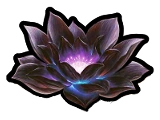The term Revisionist is used to refer to Magic: The Gathering continuity that followed the "revision": a shift in continuity that occurred around the start of the Weatherlight Saga. The term was in use by the year 2000.[1] It encompasses any book that was published by Wizards of the Coast including and following The Brothers' War.
Examples of revisionist continuity include the Artifacts Cycle, Ice Age Cycle, Legends Cycle I, Legends Cycle II, Masquerade Cycle, Invasion Cycle, Odyssey Cycle, Onslaught Cycle, Mirrodin Cycle, Kamigawa Cycle, Ravnica Cycle, Time Spiral Cycle, and any of the anthologies printed by WotC, starting with The Colors of Magic.
Wizards of the Coast's official stance is that any information from prerevisionist books not contradicted by revisionist books should be held as a part of revisionist continuity. Examples of this are the Armada comics events taking place on Corondor.
Background[ | ]
Among the earliest sets, the first core sets had no unified setting, and other expansions were assigned to writers who were given free creative rein.[2] Ten novels published by Harper Prism, and many comic books released by ARMADA, were written during this period.
All later novels were published directly by Wizards of the Coast. The Brothers' War, one of the first of these, declares that novel to be the definitive account of the events it describes. Beginning around the time of Urza's Legacy, through Onslaught block, the story was written by novelists employed by Wizards' book-publishing department.[2]
Nature[ | ]
The most important change was the clarification of the nature of Planeswalkers, ascending due to a pre-existing "spark", and the events of the Ice Age and their relation to the end of the Brothers' War. The idea of spark was already developing in prerevisionist sources, though it wasn't clearly explained.
The Harper Prism series is not in complete conflict with revisionist works. Wizards of the Coast's stance on continuity is that any elements of the Harper Prism books which are not in conflict with revisionist storylines should be considered official canon.
References[ | ]
- ↑ Lee, Jeff. The Legends of Magic: the Complete Guide. Archived from the original on March 10, 2000. Accessed February 17, 2017.
- ↑ a b Brady Dommermuth (May 27, 2003). "The Story of the Story". magicthegathering.com. Wizards of the Coast.
